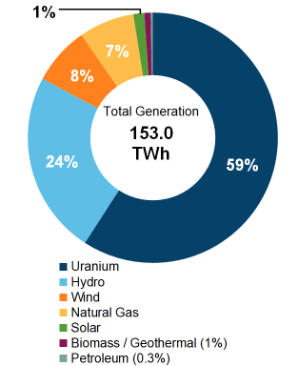Keith_W
Major Contributor
Exactly what your great-great-grandfather would have said about his horse vs. the Model T.
Oh realllllly. OK then, i'll take the Model T, you can take the horse. Zurich to Vienna. $10,000 prize. Easy money for you.
Exactly what your great-great-grandfather would have said about his horse vs. the Model T.
City living isn't the same as rural living. I also biked my way though a city when I was younger, and worn out my Oyster card in London. That's not everybody everywhere.Here is the university man who wrote about high speed trains. I am an economic historian with a lot to say about technological change, energy and economic growth. I was an older father with young kids and we did not have a car at the time (spent our money on the design of one of the town's most beautiful and valuable modern houses - you can only spend your money once). It was not a real problem at all and the children loved train travel.
One of the important aspects of the issue is that private convenience is not all that matters. CO2 emissions do matter. So the question is if an EV is good enough. I would say almost, and I am not alone. A quarter of Dutch company cars are now fully electric, and many of the larger and more visible companies now insist that their entire fleet should be electric.
Let us not forget that the discussion is about a transition. EVs will be an increasing part of that, but so will be wind turbines, a beefed up grid, high speed trains, restrictions on flying, steel factories running on hydrogen etc.
How fast did Model T's go on bumpy dirt roads (or no roads)? We're not talking about doing such a race today.Oh realllllly. OK then, i'll take the Model T, you can take the horse. Zurich to Vienna. $10,000 prize. Easy money for you.
I'm writing metaphorically. But yes, people who assert that ICE cars are in any way superior to EVs will look silly in a generation or two given current technology trends. And thanks for the gratuitous ad hominem, by the way...Well, he's dead, not silly. You don't know anything about him or his life. But sure, keep the ad hominems if they make you feel like a big man.
You lack basic reading comprehension.
I'm so tired of this bogus argument about "charging your EV with coal-generated electricity". Gasoline refineries consume huge quantities of electricity, also presumably from these dirty sources. Furthermore, my wife and I are in the process of installing eighteen solar panels on the roof of our modest northern California home, which will supply enough energy to run the house and provide about 10,000 miles of electric driving yearly. I realize that Switzerland (and northern Europe) gets far less sunshine than we do, but you probably have more hydroelectric and wind potential.EVs don't make sense for the title of the thread unless you have the energy to support it. If you charge your EV using coal-generated electricity, as Germany is doing to a sad extent, that's hardly a step forward. Let's see how the EU ICE ban from 2035 will go, when we simply lack the infrastructure and electricity generation capacity to sustain that transition.
Europe also has one of the best rail networks in the world. I could imagine myself living there comfortably without a car. That's not true in the US outside of major metropolises.In Europe most households have one car. It varies a lot by country and rural/urban setting.
As for solar panels, the issue is not so much that we have less sunshine (today our panels produced vastly more than we consume) but the fact that our winters are so dark. The good news is that offshore wind power more than compensates.I'm writing metaphorically. But yes, people who assert that ICE cars are in any way superior to EVs will look silly in a generation or two given current technology trends. And thanks for the gratuitous ad hominem, by the way...
I'm so tired of this bogus argument about "charging your EV with coal-generated electricity". Gasoline refineries consume huge quantities of electricity, also presumably from these dirty sources. Furthermore, my wife and I are in the process of installing eighteen solar panels on the roof of our modest northern California home, which will supply enough energy to run the house and provide about 10,000 miles of electric driving yearly. I realize that Switzerland (and northern Europe) gets far less sunshine than we do, but you probably have more hydroelectric and wind potential.
Europe also has one of the best rail networks in the world. I could imagine myself living there comfortably without a car. That's not true in the US outside of major metropolises.
Well in a generation or two things will change and we'll see what does what. Doesn't stop you from looking silly *right now*, does it?But yes, people who assert that ICE cars are in any way superior to EVs will look silly in a generation or two given current technology trends.
Again, poor reading comprehension. I don't even know how to respond to this latest stupidity. Let me spell it out for you - I don't care that much about the coal, that's not important (although there's India, China etc). But here in Europe we're shutting down our nuclear reactors. Germany just did it. In Switzerland the last one is to be closed in about 10 years. That's 30% of our power generation gone. Hydro we already have as much as it can bear.I'm so tired of this bogus argument about "charging your EV with coal-generated electricity".
Well you're welcome to come live comfortably where I live, without a car. Won't get you far, pun intended. There's a bus every 30 minutes. Good luck with any emergency.Europe also has one of the best rail networks in the world. I could imagine myself living there comfortably without a car. That's not true in the US outside of major metropolises.

@Willem could you clarify the workings and economic implications of using CO2 emission permits and enable trading between market parties? I remember reading a while ago it's cheaper and has better results than subsidies. I could be wrong, but if my memory is correct, it could be interesting to know a bit in the light of the thread's subject.The EU has just agreed on expanding the pricing and trading of CO2 emission permits. This is an important tool to use market mechanisms to stimulate the transition, particularly in heavy industry, shipping, flying etc. It will include a mechanism to prevent unfair competition from dirty non EU producers. The additional income will be used to support those less well off to join the transition. The latter will be left to individual countries, and could involve home insulation or heat pump subsidies for social housing, income support, and many other options. The target is to reduce emissions by 55% in 2030.
So how do you feel about Germany closing down nuclear electricity generation? To it sound collosally stupid to me. The way I've heard it, renewable energy projects have managed to replace the nuclear capacity but have made no dent in the use of fossil fuels for generation.Again, poor reading comprehension. I don't even know how to respond to this latest stupidity. Let me spell it out for you - I don't care that much about the coal, that's not important (although there's India, China etc). But here in Europe we're shutting down our nuclear reactors. Germany just did it. In Switzerland the last one is to be closed in about 10 years. That's 30% of our power generation gone. Hydro we already have as much as it can bear.

It strikes me that "green credits" are useful but would be most useful if (a) rigorously enforced, and (b) earned within a specific region. I suspect they are less useful where those credits are earned in some distant country where a monoculture of fast-growing but otherwise useless trees are planted.The EU has just agreed on expanding the pricing and trading of CO2 emission permits. This is an important tool to use market mechanisms to stimulate the transition, particularly in heavy industry, shipping, flying etc. It will include a mechanism to prevent unfair competition from dirty non EU producers. The additional income will be used to support those less well off to join the transition. The latter will be left to individual countries, and could involve home insulation or heat pump subsidies for social housing, income support, and many other options. The target is to reduce emissions by 55% in 2030.
So how do you feel about Germany closing down nuclear electricity generation? To it sound collosally stupid to me.
